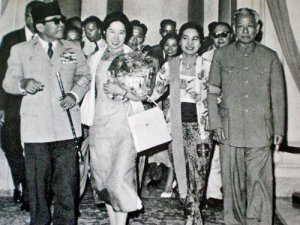Presented By: Confucius Institute at the University of Michigan
Friends VS. Enemies: Diplomacy Documentary, Espionage Film, and the Persistence of Class in Cold War China
Presented by Professor Ying Qian, Columbia University

This talk draws from both documentary films consolidating international friendships and espionage films uncovering hidden enemies to situate cinema at the center of manufacturing class visibility and certainty in a Cold War environment where identities and alliances were in constant flux. Flourishing in the 1950s and early 1960s, espionage films mapped class differences onto bodily practices, sensorial experiences and the urban space, just when political and economic changes had gradually eliminated the foundations of class politics. The persistence of the spectre of class in China’s socialist space, then, must be read in relation to Cold War anxieties of national security and anti-revolutionary infiltration. Indeed, as the Sino-Soviet brotherhood and Sino-Indonesian honeymoon, both celebrated on screen, ended in deepened international hostility and China’s ideological hardening, we see a triple crisis of domestic politics, international relations and visual representation. Diplomacy documentary descended into compulsive repetition and hysterical excess to bolster new screen friendships, for example, that with Albania. Viewing positions from espionage films were applied to real-life political struggles, most telling in using documentary “evidence” to incriminate Liu Shaoqi and Wang Guangmei for their alleged defection. Moving between documentary and fiction, domestic class politics and Cold War geopolitics, this talk attempts to think through the persistence and hardening of the notion of class in a socialist China through the central mediation of cinema.Through textual analysis and historical investigation, this paper argues that cinema’s power in the PRC had deep connections to the country’s spiritual traditions, displacing and re-assembling it to create a new society.
*Image: Wang Guangmei in Indonesia
*Image: Wang Guangmei in Indonesia
Explore Similar Events
-
Loading Similar Events...
